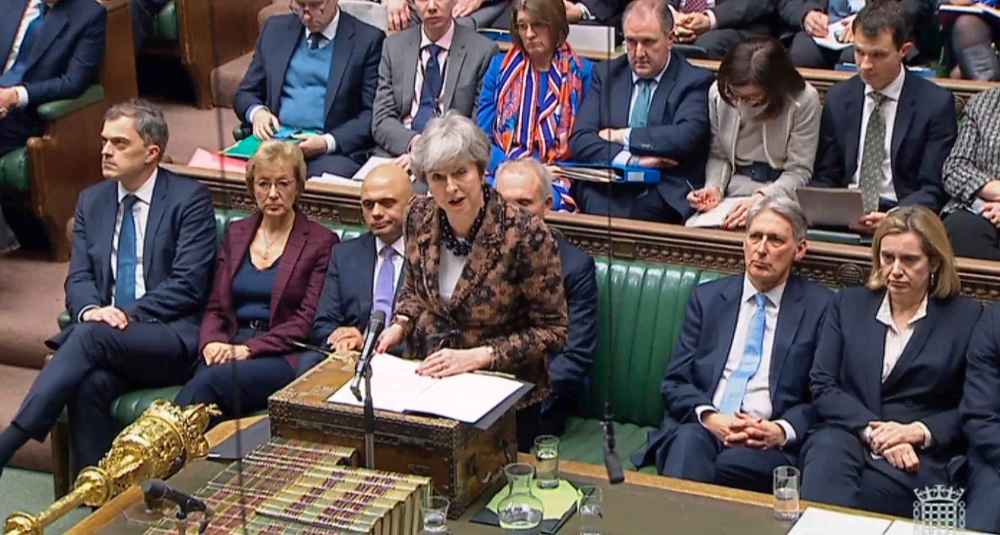Britain paralyzed by Brexit indecision
Read this article for free:
or
Already have an account? Log in here »
To continue reading, please subscribe:
Monthly Digital Subscription
$1 per week for 24 weeks*
- Enjoy unlimited reading on winnipegfreepress.com
- Read the E-Edition, our digital replica newspaper
- Access News Break, our award-winning app
- Play interactive puzzles
*Billed as $4 plus GST every four weeks. Offer only available to new and qualified returning subscribers. Cancel any time.
Read unlimited articles for free today:
or
Already have an account? Log in here »
Hey there, time traveller!
This article was published 21/01/2019 (2202 days ago), so information in it may no longer be current.
After years of debate, the United Kingdom cannot make up its mind what to do about Europe. It might finally fall to the 27 other European governments to make up their minds for them.
A slim majority of Britons voted “Leave” in the June 2016 referendum. In the 2 1/2 years since then, it turned out leaving may entail resuming the former hostilities at the border between Northern Ireland and the Republic of Ireland or else severing Northern Ireland commercially from the rest of the U.K. The Leavers hadn’t thought of that. Several solutions have been proposed, but none of them has yet found majority support in the U.K. Parliament.

The government’s solution, until last week, was a temporary open border with the Irish Republic until Europe and the U.K. could negotiate a wider trade treaty. Parliament voted that idea down by an emphatic majority on Jan. 15. This week, the parliamentary floor is pretty much open for anyone who has another idea, but there is no way of knowing which of those ideas, if any, would be acceptable to the masters of the EU, so most of the parliamentary debate is aimless chatter.
At the moment, the law of the U.K and the law of Europe both say British membership in the EU will cease about eight weeks hence, on March 29. That is looking increasingly unlikely to happen, however, because no one knows how trade, finance, transport, migration, fisheries, taxation and cost-sharing will be managed from that date forward.
The practical result that is beginning to take shape through the rhetorical fog is that things will carry on pretty much as they are now until someone can think of something better to do. A process for detaching the U.K. from Europe will begin, but it will have no deadline for completion and may in fact never be completed. We may not be able to tell from a distance whether the U.K. is in or out — mainly because Britain can’t make up its mind.
The Europeans may not allow that half-in, half-out position to continue indefinitely. Many European leaders are on the lookout for countries that want to enjoy the benefits of EU membership without sharing the burdens. They are likely to insist on a definite decision of the kind Britain’s leaders have so far been unable to make.

The merciful thing for the Europeans to do, in these circumstances, would be to kick Britain out, announce divorce terms that most observers would find reasonable, then sit back to wait for the litigation and the negotiations that would follow.
European leaders were saying this week that the ball is in Britain’s court, that Europe is waiting for Britain to decide what it wants to do, within the terms that have already been agreed at the governmental level and rejected by the U.K. Parliament. But that is a route toward perpetual indecision. Both major parties — the ruling Conservatives and the Labour opposition — want the country to be half-in and half-out because both are trying the pander to a country that is of two minds.
The EU, which is run by 27 governments and a huge bureaucracy, is even less adept than the British Parliament at swift and decisive action. The prospects of perpetual negotiation and endless rancour grow brighter with every passing day.








